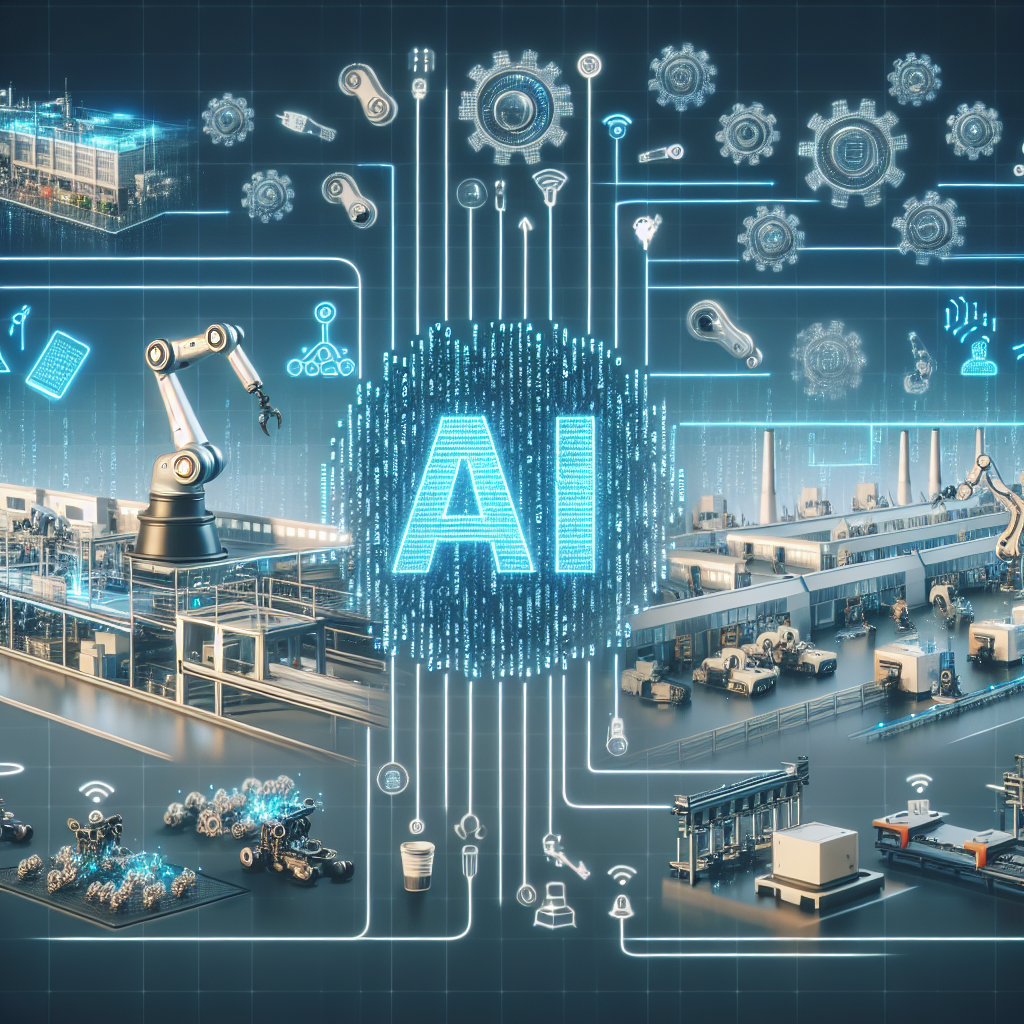Artificial Intelligence (AI) has revolutionized various industries in recent years, and the manufacturing sector is no exception. AI software has transformed the way manufacturers operate, leading to increased efficiency, improved quality control, and enhanced productivity. In this article, we will explore how AI software is revolutionizing the manufacturing sector and its impact on the industry.
AI software in manufacturing
AI software in manufacturing refers to the use of artificial intelligence technology to streamline and optimize various processes in the manufacturing sector. This technology can be applied in various areas of manufacturing, including production planning, resource allocation, predictive maintenance, quality control, and supply chain management.
One of the key benefits of implementing AI software in manufacturing is its ability to analyze large volumes of data and identify patterns that humans may not be able to detect. This allows manufacturers to make more informed decisions and optimize their operations for maximum efficiency.
AI software can also help manufacturers improve their quality control processes by detecting defects in real-time and taking corrective actions before they escalate. This can lead to reduced waste, improved product quality, and increased customer satisfaction.
Furthermore, AI software can be used to optimize production planning and resource allocation by predicting demand, identifying bottlenecks, and recommending the most efficient production schedules. This can help manufacturers reduce costs, improve delivery times, and increase overall productivity.
Overall, AI software in manufacturing has the potential to transform the industry by making processes more efficient, reducing costs, and improving quality control. As a result, manufacturers can stay competitive in a rapidly evolving market and meet the demands of their customers more effectively.
Impact of AI software on the manufacturing sector
The impact of AI software on the manufacturing sector is profound and far-reaching. Some of the key benefits of implementing AI software in manufacturing include:
1. Increased efficiency: AI software can analyze vast amounts of data in real-time and identify opportunities for process optimization. This can lead to increased efficiency in production, reduced waste, and improved resource utilization.
2. Improved quality control: AI software can detect defects in products and processes early on, allowing manufacturers to take corrective actions before they impact production. This can lead to improved product quality and increased customer satisfaction.
3. Predictive maintenance: AI software can predict when equipment is likely to fail based on historical data and recommend maintenance actions to prevent downtime. This can help manufacturers reduce maintenance costs and improve operational efficiency.
4. Supply chain optimization: AI software can analyze supply chain data to identify bottlenecks, predict demand, and optimize inventory levels. This can help manufacturers reduce lead times, improve delivery performance, and enhance overall supply chain efficiency.
5. Enhanced customer experience: By improving product quality, reducing lead times, and increasing efficiency, AI software can help manufacturers deliver a better customer experience and build brand loyalty.
Overall, the impact of AI software on the manufacturing sector is transformative, leading to increased efficiency, improved quality control, and enhanced productivity. Manufacturers that embrace AI technology can stay competitive in a rapidly changing market and drive innovation in their industry.
FAQs
Q: What are some examples of AI software used in the manufacturing sector?
A: Some examples of AI software used in the manufacturing sector include predictive maintenance software, quality control systems, production planning tools, and supply chain optimization software.
Q: How can AI software improve quality control in manufacturing?
A: AI software can improve quality control in manufacturing by detecting defects in real-time, analyzing production data to identify patterns, and recommending corrective actions to prevent quality issues.
Q: What are the benefits of implementing AI software in manufacturing?
A: The benefits of implementing AI software in manufacturing include increased efficiency, improved quality control, predictive maintenance, supply chain optimization, and enhanced customer experience.
Q: How can manufacturers leverage AI software to stay competitive?
A: Manufacturers can leverage AI software to stay competitive by optimizing production processes, reducing costs, improving product quality, and enhancing customer satisfaction.
Q: What are some challenges of implementing AI software in manufacturing?
A: Some challenges of implementing AI software in manufacturing include data privacy concerns, integration with existing systems, and the need for skilled personnel to manage and interpret AI algorithms.
In conclusion, AI software is transforming the manufacturing sector by increasing efficiency, improving quality control, and enhancing productivity. Manufacturers that embrace AI technology can stay competitive in a rapidly evolving market and drive innovation in their industry. As AI continues to advance, its impact on the manufacturing sector is expected to grow, leading to further improvements in processes, products, and customer experiences.

